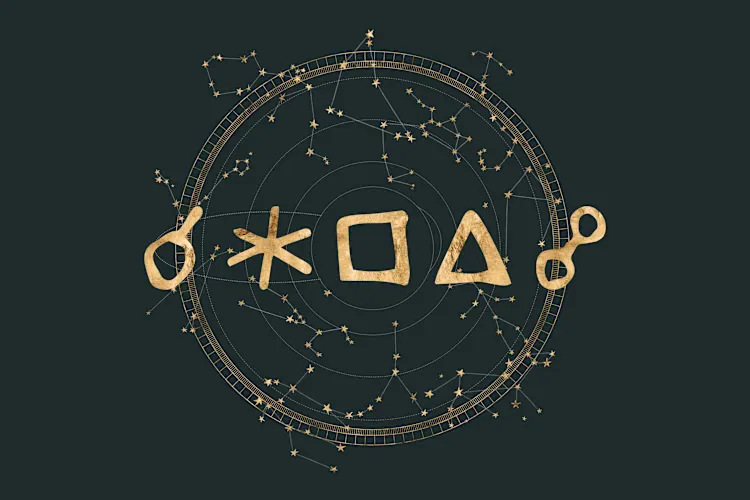01
中世纪占星黄金法则(The Golden Rule in Medieval Delineation)
- 宫位事务好坏源于宫主星(The good or bad signified by a house emanates from the ruler of the house.)
- 宫主星落他宫会联结两个宫位(The ruler of one house in another links those two houses.)
- 宫主星落他宫会助力其所主宰宫位事务的实现(The ruler of one house in another causes the realization of the house it rules.)
- 宫主星是其所主宰宫位事务的结果(The ruler of a house is the outcome of the house it rules.)
- 宫内星比宫主星的作用更为显著(Position is stronger than rulership.)
判断宫位,非常重要的是落宫比守护显著……行星落在宫位的位置远比行星守护星的影响更为明显。宫主星会显示一些结果,即最终会发生什么,应优先考虑宫内星,因为宫内星会促进或阻碍宫位事务的实现。
In judging a house, it is very important to keep in mind that position is stronger than rulership. While we have just been discussing rulership in the figure and there is more yet to be said about rulership in connection with houses, the position of planets in the house is of far more impact than the strength of the ruler. The ruler will show something of the outcome, what will eventually eventuate, but the planets in the house are given preference because they will work for or against the realisation of the houses.
关键在于宫主星的黄道状态及力量。正如中世纪占星家反复提及的,要实现所主宰宫位的征象,宫主星必须是“吉利和强力”的。这意味着良好的先天状态(某种程度的尊贵;与其定位星呈有利的或至少无害的相位;未被凶星所削弱);万一被凶星所合相、刑克或对冲,则我们希望凶星与其守护星之间形成接纳。缺少接纳,则守护星实现其所主宰宫位事务的能力将受到阻碍。
The key to it is the zodiacal state and strength of the ruler of the house. For it to realize the promise of the house it rules, it must be “fortunate and strong,” as the medieval authors so frequently state. This means, of good zodiacal state (some measure of dignity; a favourable, or at least not unfavourable, relation with its dispositor; unimpeded by the malefics). Should it be conjunct, square or opposed a malefic, we want to see a reception between the malefic and the ruler. In the absence of a reception the ruler’s ability to realize the affairs of the house it rules is impeded.
02
多星同宫法则(More Than One Planet in a House Rule)
宫内接近宫头的行星具有最强的影响力,如主宰该宫位的行星也在宫内,即使未接近宫头,也具有更为强大的影响力。
The planet closest to the cusp is the more powerful planet in the house UNLESS the planet that rules the house is also in the house – in which case it is the more powerful planet despite its position in the house (i.e. it does not have to be closest to the cusp).
换言之,宫内的宫位主宰行星>宫内的接近宫头行星
03
宫主星异宫法则(Ruler of a House in That House Rule)
当宫主星落其他宫位时,宫主星会实现所落宫位的事务。
When the ruler of the house is in the house it realizes the affairs of the house.
宫位主宰星会在所落宫位吸收能量,再把这些得到的能量带回它所主宰的宫位。宫位主宰星只为它主宰着的宫位服务。






